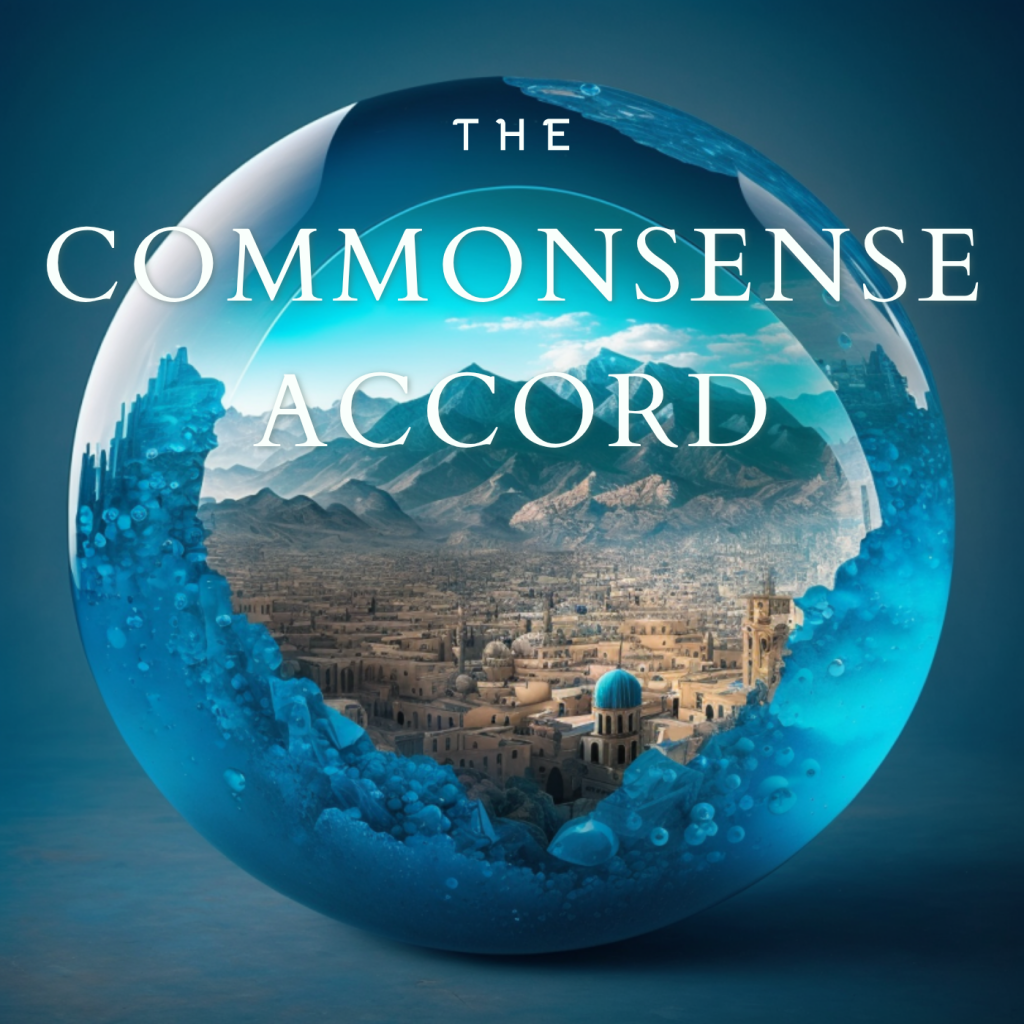
The Commonsense Accord - Collectively stewarding the world, across time and across differences
Creator Information
Name:
Role:
Social Media/Website:

🌍 World Summary
Vision Statement
A world shaped through intention and interdependence by the Commonsense Accord. Decisions are made with future generations and representation of nature in the room, while ‘growth’ has been redefined as something that enriches life instead of consuming it.
🔬 Technology
Digital twins
Digital twins reflect the real-time state of communities and ecosystems. They help people simulate futures, explore consequences, and make decisions guided by care, memory, and shared responsibility. Every community and citizen holds its own data as a form of digital sovereignty.
What kind of AI exists in your world?
AI exists in the background. It monitors natural systems, and supports coordination across networks of trust. It’s a public utility like the plumbing of civilization, handling stuff like maintaining public archives, water systems, and traffic timing. Local cooperatives maintain and audit its algorithms. Design choices are slow, open, and reversible. No avatars, no synthetic charm, no replacement fantasies. The real intelligence guiding decisions is human and deeply so.
New or Reformed Institution
The Interbeing Forum is a rotating assembly of stewards from across bioregions. It includes people, yes, but also guardians (advised by digital twins) for rivers, soils, and future generations. It oversees the Commonsense Accord and safeguards the integrity of the digital twin ecosystem. Its role is to hold space for long-term responsibility. These stewards of trust make sure decisions are transparent, accountable, and shaped by care over control.
Transformed Sector
Governance no longer sits far removed from the people, in city halls or backrooms. It unfolds in circles, walking paths, and shared platforms. The yearly Unfolding brings people together to revisit what matters and realign priorities. Political parties have faded along with their relevance. In their place are rotating councils and long-term trustees. Governance has become a form of shared stewardship, where “civic weaving” rooted in local knowledge and future impact, guides conversations.
A Major Crisis Overcome
The turning point came in 2029. Several ecological tipping points and the failure of the SDGs collided with social exhaustion. People were tired of being managed and misled. Instead of collapse, they created pause. Entire cities entered a state of reflection. The economy slowed on purpose. In that silence, communities began to listen to one another, and to the future. What grew from that stillness was the Accord to make sense of the world again, collectively.